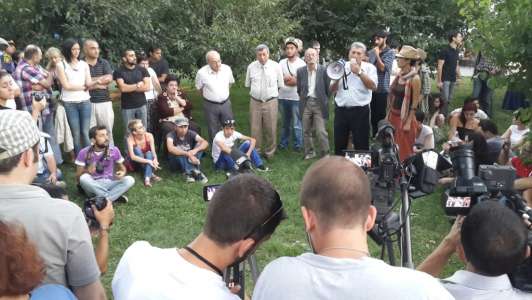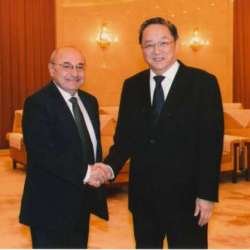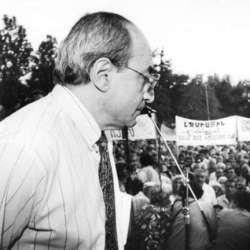
From 2008 to November 13, 2019, Vazgen Manukyan headed the Public Council of the Republic of Armenia.The Public Council was established on July 12, 2008, with the aim of promoting the establishment and development of civil society in the country, creating an atmosphere of tolerance, and constituting a constructive dialogue between the government and various segments of society.
Prominent scientists, public, cultural figures, former statesmen, intellectuals were involved in the Council, who, by uniting and cooperating within the Council, formed a common vision for the future of Armenia and the Armenian people, formulated issues that were presented to the authorities of the day.
During the years headed by Vazgen Manukyan the Council performed actively, responding to all the issues concerning Armenia and the Armenian people, which received a public resonance and touched the society.
Numerous issues were raised and considered in the Council and proposals on them were submitted to the RA President or the RA Government on the initiative of the Public Council members or commissions. Some of these issues were immediately resolved, some were included in the guidelines and programs of the RA Government activities.
The Public Council of the Republic of Armenia became a member of the International Organization of Public Councils (www.aicesis.org) on July 7, 2010, at the General Assembly of International Association of Economic and Social Councils and Similar Institutions in New York, upon the presentation of the AICESIS presidency.
Within the framework of international cooperation the Public Council of the Republic of Armenia signed bilateral cooperation agreements with a number of countries of the Association (Russia, China, Brazil, Greece, Portugal). Within the framework of the International Association the Union of Francophone Countries (UCESIF) was also established, ofwhichthe Public Council of the Republic of Armenia has also been a member since 2015.
The Council worked closely with the President of the Republic of Armenia, the Head of the Government, and the heads of state agencies. The commissions of the Public Council actively cooperated with the representatives of the relevant state structures. The culture of public dialogue and public discussions reached a new level of development.










